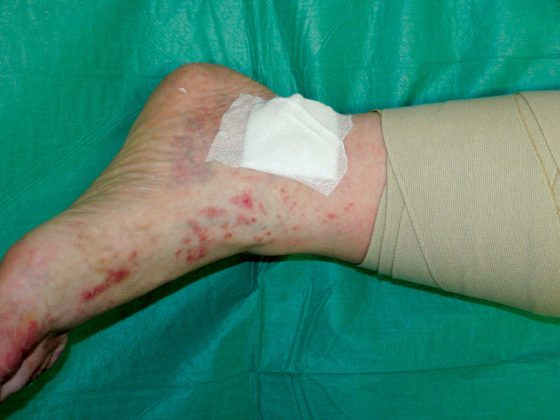The “International Consensus Statement on Allergy and Rhinology: Allergic Rhinitis” (ICAR: AR 2023) is a valuable tool to overcome therapeutic inertia and achieve the best possible outcomes in the treatment of patients with allergic rhinitis. Compared to the 2018 edition, 41 new topics have been added. In addition to an outline of the current evidence base, gaps in knowledge and “unmet needs” are also discussed.
The number of publications in the field of allergic rhinitis (AR) has increased considerably in recent decades, so that the earlier edition of the consensus paper needed to be revised [1]. A PubMed search conducted in 2022 revealed that a total of 7169 citations on AR were published between 2018 and 2022 [2]. One aim of the new edition of ICAR:AR, which will be published in 2023, is to summarize this huge amount of new facts for busy clinicians [3]. More than 120 authors have critically evaluated the evidence on 144 individual topics of AR in 10 major topics related to allergic rhinitis. The following is a compact overview of some important points.
Epidemiology
The global prevalence of AR is estimated at 5-50%. An increase in incidence can be observed in children and adolescents. The prevalence varies depending on the geographical region and latitude and is highest in English-speaking countries. The effect of climate change on AR prevalence is the subject of current studies [4].
Diagnostics
The medical history is crucial for the diagnosis of AR. There are several validated survey instruments that can help with the diagnosis. The physical examination also includes an optional nasal endoscopy, which can reveal central compartment edema or polypous changes that have recently been associated with allergies [5]. Nasal endoscopy can also help to rule out other diagnoses. Confirmatory testing is helpful when considering targeted avoidance strategies or allergen immunotherapy, which may be beneficial when symptomatic drug therapy is not satisfactory.
A skin prick test is recommended when a diagnosis of AR needs to be confirmed or in a patient with suspected AR who has failed appropriate empirical medical therapy and is being considered for allergen immunotherapy. Intradermal and mixed techniques can be used to confirm allergic sensitization. Allergen-specific serum IgE testing may be required if patients have relative or absolute contraindications to skin testing, such as taking beta-blockers, uncontrolled asthma or medications that may interfere with the skin test response.
Treatment options
Although frequently used in the context of AR treatment, the data situation regarding allergen avoidance strategies is inconsistent. Therefore
Avoidance of pets and pollen allergens is considered an optional intervention.
Symptomatic drug therapy: The use of the following therapy options is strongly recommended:
- Newer generation oral antihistamines (in contrast to the first generation)
- intranasal corticosteroids
- intranasal salt water rinses
- Combination therapy with intranasal corticosteroids plus antihistamines for patients who do not respond to monotherapy
- Subcutaneous immunotherapy (SCIT) or sublingual immunotherapy (SLIT) in eligible patients.
In addition, the consensus paper contains a strong recommendation against the use of oral decongestant monotherapeutics and against the routine use of oral corticosteroids in AR.
Immunotherapy: SCIT for AR is a treatment option with a strong recommendation and high empirical evidence. SCIT is an effective therapeutic measure that can lead to improvements in symptoms and quality of life as well as reduced use of emergency medication. SLIT has also proven to be effective with regard to these aspects. In meta-analyses, SCIT proved to be superior to SLIT in terms of efficacy, although it should be noted that these results were largely based on indirect comparisons and that SLIT showed an advantage in terms of safety.
In the age group of children and adolescents, it is important to consider the “atopic march” factor and to take a family history of atopy. Skin prick tests are usually carried out routinely on children. Although treatment options for very young children are limited, allergen immunotherapy can reduce the risk of developing asthma later in life in children with AR.
Associated comorbidities
Due to the unity of the upper and lower airways, there is a recognized link between asthma and AR and AR is considered a risk factor for the development of asthma. In patients who suffer from both AR and asthma, treatment with allergen immunotherapy can improve not only AR but also asthma symptoms. In addition, a connection between AR and various forms of chronic rhinosinusitis was investigated. Although studies are inconsistent, allergies are thought to play a role in allergic fungal rhinosinusitis and central compartment atopic disease. Although recent publications have found an increased prevalence of IgE-mediated allergy in aspirin-exacerbated airway disease compared to previous reports, the primary pathophysiology of aspirin-exacerbated airway disease is altered arachidonic acid metabolism rather than IgE-mediated hypersensitivity. There are relatively clear data for an association of AR with sleep disorders, pollen food allergy syndrome (PFAS), conjunctivitis and atopic dermatitis.
Future research questions
In addition to the topics mentioned, the consensus paper contains a special section on COVID-19. Furthermore, according to the expert panel, there are other areas of research related to AR that have not yet been sufficiently explored. For example, little is still known about risk factors for developing AR and the relationship between possible risk factors and genetic factors. There are several ongoing research projects on the role of climatic and geographical factors in the development of AR.
Inexpensive test options such as nasal allergen-specific IgE and mast cell activation values are also examined. With regard to optimizing treatment options, it is necessary to evaluate combination therapies and direct cost and efficacy comparisons of different options (e.g. SLIT and SCIT). A better understanding of the effects of AR on other ENT diseases such as nasal polyps, ear diseases and voice diseases is also required, according to another statement in the international consensus paper.
Literature:
- Wise SK, et al: International Consensus Statement on Allergy and Rhinology: Allergic Rhinitis. Int Forum Allergy Rhinol 2018; 8(2): 108-352.
- “International Consensus Statement on Allergy and Rhinology: Allergic Rhinitis 2023”, https://bulletin.entnet.org/clinical-patient-care/article/22861705/icar-allergic-rhinitis-2023,(last accessed 08.03.2024)
- Wise SK, et al: International consensus statement on allergy and rhinology: Allergic rhinitis – 2023. Int Forum Allergy Rhinol 2023; 13(4): 293-859.
- Wise SK, et al: A Synopsis of Guidance for Allergic Rhinitis Diagnosis and Management From ICAR 2023. J Allergy Clin Immunol Pract 2023; 11(3): 773-796.
- DelGaudio JM, et al: Central compartment atopic disease. Am J Rhinol Allergy 2017; 31(4): 228-234.
FAMILY PHYSICIAN PRACTICE 2024; 19(3): 20-21











